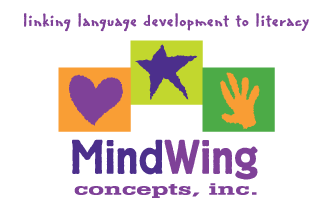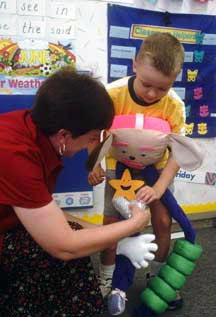Secure Checkout + FREE SHIPPING (U.S. Orders over $60)
Menu
-
- Home
-
About Us
-
The Approach
-
Linking Language & Literacy
-
Professional Learning
-
Learning Resources
-
SHOP
-
Blog
-
- About MindWing
- Our People
- Contact Us
- Your Account
- Login
-
United States (USD $)

Secure Checkout + FREE SHIPPING (U.S. Orders over $60)
High Stakes Test Results: An Opportunity for Collaboration Using SGM
by Sheila Zagula September 30, 2016 2 min read
 After receiving many positive comments regarding a recent post, Using Data Collection and Collaboration to Enhance Instruction, I wanted to share two other ideas that you may find helpful when first using the SGM® in your school. If you are not using the SGM® school-wide, then try working with a colleague as the SGM® is the perfect vehicle to establish collaboration and a common language around student comprehension questions and the thought processes involved in answering those questions.
After receiving many positive comments regarding a recent post, Using Data Collection and Collaboration to Enhance Instruction, I wanted to share two other ideas that you may find helpful when first using the SGM® in your school. If you are not using the SGM® school-wide, then try working with a colleague as the SGM® is the perfect vehicle to establish collaboration and a common language around student comprehension questions and the thought processes involved in answering those questions.
As staff became familiar with the SGM® and began using the tool in classrooms, I often would analyze released items from our state assessment, the Massachusetts Comprehensive Assessment System (MCAS) and share with all staff in our K-5 school. The MCAS was administered in grades 3, 4, and 5 and often times, teachers in grades K-2 were not included in discussions about results. They were told the results. How many times are teachers given results, told that scores must improve, but are never given the time to actually work through questions from a student’s perspective and break down the needed skills?
-
After analyzing the text and questions, teachers were brought together to look at the actual selections. I presented an overview as shown below (this from 2006, as an example) as we began unpacking the type of question and SGM® maps that could be used to scaffold answers.

We then discussed the complexity of many of the questions and the thought process that students would need to go through to successfully answer the question(s).
-
The following was yet a more detailed approach. This was from a 2005 fourth grade MCAS selection, The Mustard Seed. The results are on the Open Response writing question (#18) that was presented.

Above: This shows teachers the percentage of students who scored at a 3 or 4 on a 0-4 rubric — here 19.5% of our students in grade 4; the actual MCAS question; 1. The question rephrased; 2. The type of selection (in this case a story, narrative); and 3. the SGM® maps (which are a thought process) which would be needed to answer the question.
Below: I then included sample answers that were presented on the site.

Below: I also showed how using the SGM® would help in answering this question (in this case the Complete Episode Map from the woman’s perspective and the Critical Thinking Triangle® from the Buddha’s perspective).

What was exciting about the second, more detailed approach was that teachers and interventionists then went back and used the maps with the selection. We then gathered to check on the results.
Although the MCAS was used in the above examples, we chose a wide variety of selections from multiple sources to discuss. What remained constant, however, was the SGM® common language among teachers, specialists, and students…a powerful collaborative tool!
Sheila Zagula
Sheila Zagula works with MindWing Concepts in product development, drawing on her expertise and talents as well as many years of implementing the Story Grammar Marker® and related materials. Her teaching career spans thirty-eight years, most recently as literacy coach in the Westfield Massachusetts Public School System. Sheila has experience as an early childhood educator, a teacher of children with special needs, and a collaborative instructor within an inclusion framework serving children in grades K-5.
Leave a comment.
Comments will be approved before showing up.






